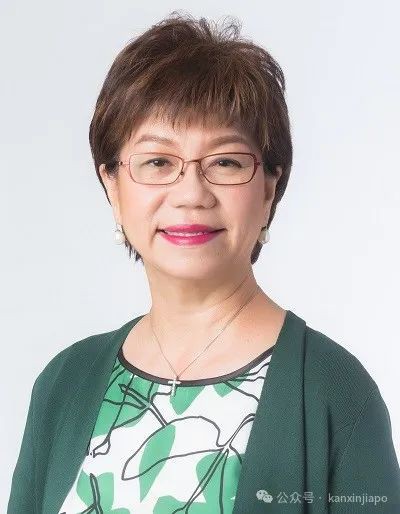2024年3月6日,新加坡文化、社区及青年部兼社会及家庭发展部高级政务次长蔡瑞隆,回复惹兰勿刹集选区议员潘丽萍关于提升版社区联系站计划(ComLink+)以及残障人士就业的问题。

蔡瑞隆

潘丽萍
以下内容为新加坡眼根据国会英文资料翻译整理:
潘丽萍女士(以下简称 “我”):感谢部长、国务部长和高级政务次长全面而贴心的回答。我有两个补充问题,主要是问高级政务次长蔡瑞隆的。
第一个问题与提升版社区联系站计划(ComLink+)有关。我听到了关于此项计划几乎完善的叙述。相信高级政务次长在这方面也经验丰富,在为广大家庭提供服务的过程中,确实存在很多挑战。我想重申在发言时提出的问题:试点进展如何?有哪些挑战?我们打算如何解决这些问题?其他人和部门,包括政府,打算如何共同解决这个问题?这是我的第一个补充问题。
第二个问题与残疾人赋权计划有关。我想再次提问:首先,这份报告非常好,我非常认同。很多报告都与活动有关,这是一个很好的方式,但我们需要将其与产出联系起来。同时,我们还要确保报告不过时,8年总体规划是非常重要的事情,在这个时代,很多东西的保质期都很短,所以我认为,社会服务部门的八年总体规划肯定需要定时更新。因此,能否每年进行一次有组织的正式审查,以确保这些计划得到更新?还包括我所分享的需要纳入包容性保险、刑事司法、审查和加强适当成人计划等热点话题,以及将多动症和阅读障碍等神经多样性状况纳入总体规划。
此外,还有一些热点问题,比如为中度和重度残疾人提供日常活动中心。我认为,我们确实需要考虑一种混合资助模式,就像我们多年前在维文部长的领导下,为新加坡社会及家庭发展部所做的那样,即有一个普遍的核心基础,然后再挖掘,再增加,用对基本服务的财政来补贴,这样至少可以支付这些模式的基本核心费用。
蔡瑞隆先生:我感谢潘丽萍女士所作的两项非常详尽的提问。希望我将给出尽量详尽的答复。
我同意这位议员的看法,在实施方面,我们确实经常会遇到很多障碍,特别是在我们需要合作伙伴共同合作的时候,尤其是在政策实施的时候争取一些灵活性时。但请放心,升级版社区联系站计划家庭接触的每一位社工、家庭辅导员,直至高级公务员和我本人,都有一个非常明确的观点,我们确实非常关注这个的情况,我会详细说明实施时遇到的各种障碍。
我在这里向大家承诺,新加坡社会及家庭发展部的官员,以及一线的服务人员,都将致力于帮助每一个新加坡社会及家庭发展部服务的家庭。因此,这是对潘丽萍女士第一个问题的一个非常宽泛的回答。
对于第二个问题,我要感谢她在这方面的热情倡导。我可以向这位议员保证,我们并不是简单地看总体规划的产出,一些具体指标也有成果。因此,举例来说,在就业方面,就业率要达到40%。在2022年启动《2030年赋能总体规划》之初,我们的就业率约为30%到31%。要实现从30%到40%的飞跃,这意味着需要安置约10000个工作岗位。我们所说的远远不止安置,因为我们希望残疾人能够保住工作,持续就业。而就业不仅仅是有一份工作,每天朝九晚六有地方去,它还关乎个人赋权,在很多情况下,还关乎自我价值的实现。因此,这只是我们如何关注结果的一个例子。
其他成果包括,国家社会服务委员会对残疾人进行了一项名为残疾与包容小组生活质量研究的调查。这项调查是我们参考的代理报告之一,每两年进行一次,以了解这一领域的问题是如何运转的。我很希望潘丽萍女士了解,2030年总体规划并不是一个生硬的计划,事实上,它是一个非常有生命力的计划。
这并不意味着我们在2022年所说的话就是真理,我们对一些政策的调整持开放态度。事实上,我们已经在总体规划中指出,我们知道情况正在发生变化,特别是在辅助技术等方面。我们承认这一点,并欢迎大家在迈向2030年的过程中提出任何建议。我想补充一点,2030年绝对不是一个句号,而是我们将新加坡建设成为一个更加包容社会过程中的一个逗号。我希望以上陈述,足以向这位议员作出承诺。

以下是英文质询内容:
Ms Denise Phua Lay Peng: Thank you Minister, Minister of State and Senior Parliamentary Secretary for your comprehensive and caring responses. I have two supplementary questions, mostly for Senior Parliamentary Secretary Eric Chua.
3.45 pm
The first one has to do with ComLink+. I hear an almost picture-perfect narrative of what has happened. But I know and am sure the Senior Parliamentary Secretary also goes through quite a lot of this every day, that it is not picture-perfect and there are lots of challenges actually serving our families. And I just want to reiterate what I asked in my cut. How did the pilot go? What were the challenges? And how do we intend to solve this? And how do the rest of us, including the Government, plan to work at it together? That is my first supplementary question.
The second one has to do with the Enabling Plan for persons with disabilities. Again, I want to ask from my cut. First is that it is great and I am very thankful for the report that was made. A lot of these reports pertain to the outputs, activities, and that is a really good start as well. But we need to link it to outputs. At the same time, we also want to make sure that it is not outdated. Eight-year master plans are like really major things. Even in this time and age, a lot of things, shelf lives are very short. So, I really think that eight-year master plans in the social service sector definitely have to be updated. So, can I ask for a structured official review each year so that we can ensure that these plans are updated? Also include what I shared about the need to include hot topics like inclusive insurance, criminal justice, review and strengthen the appropriate adult scheme and also to include ADHD and dyslexia, such neurodiverse conditions into our master plan.
And also, the hot button issues, which are really the financial subsidies for essential services, such as daily activity centres for those with moderate to severe disabilities. I think we really need to consider a hybrid model of funding just like what we did many years ago, I think under Minister Vivian for MSF, where there is a universal core base and then you tap on, you add on, top up with means-tested subsidies so that at least the fundamental core expenses for such models can be covered.
Mr Eric Chua: I thank Ms Denise Phua for two very extensive clarifications. I will take the first clarification first. I am afraid I will not be able to give a very detailed reply.
I agree with the Member that in terms of implementation, in fact, oftentimes, we meet a lot of implementation roadblocks, especially where we need partners to work together, especially where we need perhaps to push for maybe some flexibility at the edges of our current day policies. But rest assured that there is a very intentional view right from the social service officers on the ground, the social service office’s general managers, as well as each of the SSO officers that are in touch with the ComLink+ families, the family coaches, right up to the senior public servants, as well as myself. We do take a very keen interest in what is going on on the ground. So, while I cannot — well, I can, but I would definitely use up all the clarification time, go through all the details of the various implementation bumps, if you will, that we have encountered.
But you have my commitment in this Chamber that MSF and our officers, right down the line to the SSOs on the ground, will commit to helping every single ComLink+ families that we are serving today. So, that is a very broad answer to Ms Denise Phua’s first question.
To the second question, I want to thank her for being a very passionate advocate in this space. And I assure the Member that we are not simply looking at output in the Enabling Masterplan. Some of the indicators that we look at pertains specifically to outcomes. So, for instance, in terms of employment, getting to 40% employment, and that translates, from when we first started in 2022, when the Enabling Masterplan 2030 was launched, we were at about 30%, 31%. And to make that leap from 30% to 40%, that translates to about 10,000 job placements. And we are talking about going way beyond placements, because we do want persons with disabilities to keep their jobs, to sustain employment. Because employment is not simply about having a job, having somewhere to go nine to six every day. It is also about personal empowerment. It is also about self-actualisation in many instances. So, that is but one example of how outcomes are also being attended to.
Other outcomes that we look at, NCSS conducts a quality of life survey of persons with disabilities and this is called the Disability and Inclusion Panel Study. And this is conducted once every two years. This is also one of those proxy reports that we refer to, to see how the needles are shifting in this space. And I really want to behoove Ms Denise Phua that the EMP 2030 Masterplan is not a dead plan. In fact, it is a very live plan. It does not mean that what we have said in 2022 is truth with a capital “T”. We are open to evolving some of the strategies; we are open to evolving some of the methods. In fact, we have stated in the Masterplan itself that we understand that things are changing, particularly in terms of, say, assistive technology. And we acknowledge that and we welcome any suggestions along the way as we get to 2030. And if I can add, 2030 is most definitely not a full stop. To me, it is the figurative comma in our journey towards making Singapore a more inclusive society. So, I hope that is sufficient assurance for the Member.
CF丨编辑
CF丨编审
新加坡国会丨来源
新加坡国会丨图源
免责声明:
1.凡本网站注明文章类型为“原创”的所有作品,版权属于看南洋和新加坡眼所有。其他媒体、网站或个人转载使用时必须注明:“文章来源:新加坡眼”。
2.凡本网站注明文章类型为“转载”、“编译”的所有作品,均转载或编译自其他媒体,目的在于传递更多有价值资讯,并不代表本公众号赞同其观点和对其真实性负责。

相关阅读












